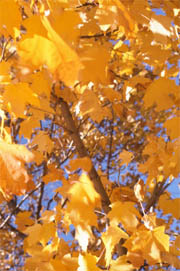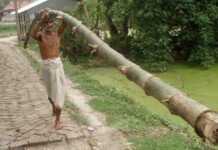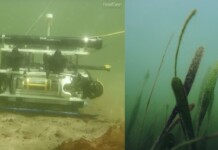 The rock band Pearl Jam has donated $210,000 to the Seattle-based Cascade Land Conservancy for the planting of native trees and shrubs to offset the carbon footprint left behind by their 2009 US tour.
The rock band Pearl Jam has donated $210,000 to the Seattle-based Cascade Land Conservancy for the planting of native trees and shrubs to offset the carbon footprint left behind by their 2009 US tour.
The group’s investment covers their own travel and hotel contributions, as well as the emissions by fans who travelled to dates on the 32-date jaunt.
They made similar green moves in 2006, donating $100,000 to environmental organizations to help mitigate carbon emissions from that year’s tour. Going back to 2003, they have included carbon offsets in their business plan, making amends by donating money, for instance, to preserve a Madagascar rain forest.
“A band on tour generates a lot of carbon,” said Stone Gossard, Pearl Jam’s guitarist and founder. “We are constantly moving, using carbon-dependent forms of transportation and a great deal of energy. Since 2003, we have elected to mitigate our carbon output by tracking and calculating our emissions and contributing money to projects that strategically work to improve the environment. We view this as a cost of doing business.”
This year, Gossard and the band decided to partner with CLC’s community-based stewardship program to remove invasive plants and replant with native shrubs and trees in order to address the serious decline of urban forested areas. The restoration efforts, beginning immediately, will be in partnership with local city agencies and community volunteers and will be completed by December 2013.
Approximately 33 acres of native trees and plants will be planted along trails in communities around the Puget Sound. The plantings will mitigate more than 7,000 metric tons of carbon. Conservation International chief adviser Michael Totten estimates Pearl Jam’s actual carbon emissions from its 32-date 2009 tour to be 5,474 metric tons of CO2.
 “Trees are incredible at absorbing carbon,” said Gene Duvernoy, CLC president. “Pearl Jam’s contribution will enable us to plant urban forests throughout the Puget Sound and restore native trees and understory to ecosystems that have faced intense human pressures. This sort of approach has an enormous impact on improving forest health, connecting people to nature, and activating communities to engage in the restoration and stewardship of natural open spaces,”said Duvernoy.
“Trees are incredible at absorbing carbon,” said Gene Duvernoy, CLC president. “Pearl Jam’s contribution will enable us to plant urban forests throughout the Puget Sound and restore native trees and understory to ecosystems that have faced intense human pressures. This sort of approach has an enormous impact on improving forest health, connecting people to nature, and activating communities to engage in the restoration and stewardship of natural open spaces,”said Duvernoy.
The band will also track, calculate and mitigate its carbon for their current 2010 tour.
(READ more in the Mother Nature Network)



















